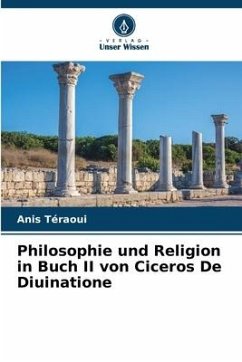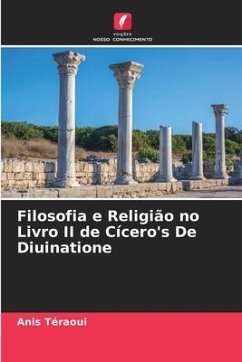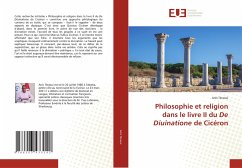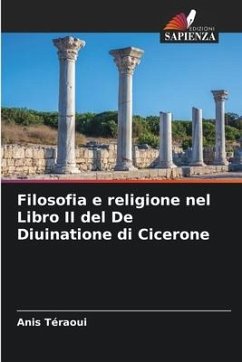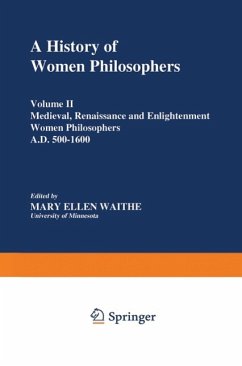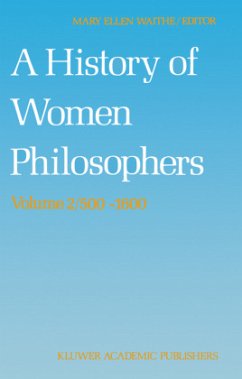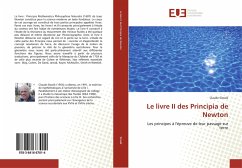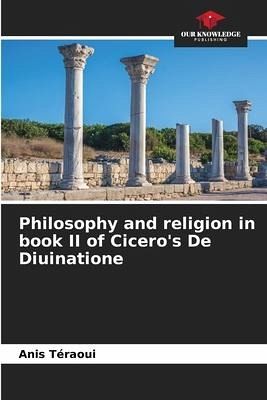
Philosophy and religion in book II of Cicero's De Diuinatione
Versandkostenfrei!
Versandfertig in 6-10 Tagen
64,99 €
inkl. MwSt.

PAYBACK Punkte
32 °P sammeln!
This research entitled "Philosophy and religion in book II of Cicero's De Diuinatione" constitutes a philological approach to the content of this treatise, which is composed - it should be remembered - of two diptychs. Thus Quintus Cicero develops first, in the first book, the point of view of the Stoics: divination exists, the agreement of all the peoples on this subject is a proof of it. As for Marcus Tullius Cicero, he is less affirmative than his brother. He enumerates all the arguments that the skeptics usually invoke against the divination. Chance can explain much. It is advisable, above...
This research entitled "Philosophy and religion in book II of Cicero's De Diuinatione" constitutes a philological approach to the content of this treatise, which is composed - it should be remembered - of two diptychs. Thus Quintus Cicero develops first, in the first book, the point of view of the Stoics: divination exists, the agreement of all the peoples on this subject is a proof of it. As for Marcus Tullius Cicero, he is less affirmative than his brother. He enumerates all the arguments that the skeptics usually invoke against the divination. Chance can explain much. It is advisable, above all, to be wary of superstition, which creeps into our whole life. This does not mean that we should give up "political" divination. In any case, the art and the law of augury must be maintained, because they are based on an instinctive wisdom which it would be unreasonable to refuse.



